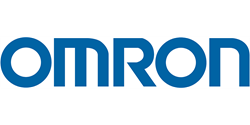An EDN article by Rob Alexander
With the Matter 1.0 specification launched and authorized test labs now open for Matter certification, device makers are eager to bring innovative Matter-compatible devices to market and provide consumers with a more seamless, truly interoperable smart home experience. As an industry-unifying standard, consumers can trust that Matter certified products conform to the Connectivity Standards Alliance’s rigorous specifications for integration, reliability, and security.
Navigating through the product development cycle and determining how a solution should be built can be a complicated process. After development, device makers go through quality assurance (QA) testing of their own to determine if a product is operational and performing well. Then there are certification programs from third parties that can often be confusing or even overwhelming. However, certain testing and certifications are key for market entry and building product credibility.
For example, any wireless product being introduced in the U.S. market must be FCC tested and certified to ensure that radio devices within the product are not emitting harmful and disruptive frequencies; other governing bodies also enforce regulation around radio frequencies, and devices must be certified to be sold in certain regions. When it comes to Matter certification, the ability to use certified product logos and establish your device as compatible with leading ecosystems like Amazon’s Alexa, Apple’s HomeKit, Google’s smart home ecosystems, and more helps reach a broader base of consumers.
On top of other safety and quality certification programs, the path to Matter certification itself consists of three phases: product development, testing at an authorized test provider, and application for certification with the Alliance. Within the certification process, a product must also meet dependent certifications such as Bluetooth, Thread, and Wi-Fi. The “to-do” list can build quickly—and no one wants obstacles or oversights in the certification process to delay their latest product launch and announcement.
Module-centric certification approach
So, how can a device maker stay focused on building high quality products while ensuring that it gets a Matter seal of approval? Turning to a trusted expert can save device makers time and money. Here, semiconductor suppliers are helping streamline the certification process with modules, manufacturing services, dedicated support, and more to help expedite or skip testing entirely and will even guide device makers through the application paperwork.
Starting from design, modules can help developers construct products with software and components that have already been certified, entirely removing the burden of pursuing certification on their own. To maintain certification, however, making changes or adding functionality outside of what modules offer can be limited. Even with more custom designs, vendors can consult device makers on these added complexities beyond the boundaries of sample applications and the best path for testing.

The pre-certified modules offload the burden of pursuing components certification. Source: Silicon Labs
Silicon Labs, for instance, hosts a community forum where builders can ask questions and get insights from the company’s’ field application and support engineers. Silicon Labs also offers technical guides on the certification process to help engineers find resources all in one place and go to the market faster. For example, if you use Silicon Labs’ certification libraries and certified stacks for building Bluetooth, Thread, or Wi-Fi products, you can skip the testing phase and head straight to your certification application, because the sample applications are already pre-certified. If extra tests are needed, experts can also point you toward the best Bluetooth, Thread, or Wi-Fi tools and hardware to test your systems against and recommend the best Matter-authorized test providers in your region to schedule test time.
After the Connectivity Standards Alliance validates a manufacturer to sell Matter-compliant devices, every certified device must also have its own certificate, which is essentially a security certificate injected during manufacturing to identify the device. Silicon Labs also provides a certificate provisioning service or custom part manufacturing service to pre-inject system-on-chips (SoCs) in these devices with a Matter certificate.
An easier, streamlined certification process will bring forth many exciting, new products. Already, there are more than 600 Matter-certified and soon-to-be Matter-certified products on the market. Consumers will see the smart products in their home start to work even faster than they imagined.
Rob Alexander is principal product manager for Matter at Silicon Labs.

